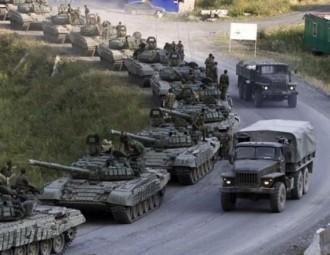Ulad Vialichka: Biggest risks for Belarus are connected with the excessive Russia’s ambitions
 photo obozrevatel.com
photo obozrevatel.com
If the country’s sovereignty is of importance for the Belarusan authorities, they had to think what they can do to protect it.
This statement made Ulad Vialichka, the head of the International Consortium “EuroBelarus”, commenting on an appeal issued by the Belarusan National Platform of the Eastern Partnership Civil Society Forum "On the support of the UN Resolution on the territorial integrity of Ukraine".
- Belarusian National Platform has supported the UN Resolution on the territorial integrity of Ukraine, which was voted down by the official Minsk. What is the import of the appeal? Is it to show solidarity with Ukraine or to demonstrate that Lukashenka’s opinion is not representative in Belarus?
- On the one hand, we have been continually supporting Ukraine in this difficult historical time. And this appeal emphasized that we stand for Ukraine’s integrity one more time.
On the other hand, we believe it is important to demonstrate our attitude to the position of the Belarusan authorities. The participants of the National platform understand that it is hard for the official Minsk to be unequivocal now. And that is why we hear words in support of Ukraine’s territorial integrity today and see actions in behalf of the Russian authorities later. The aim of our appeal is to demonstrate that there are different opinions in Belarus as to who is responsible for the Russia-Ukraine conflict. We formulated our stance on the basis of the international law, voiced the disapproval of Russia’s actions in Crimea and in other Ukraine’s regions.
- The official Minsk has supported Kremlin’s position, by this making Belarusans be the prisoners of Kremlin’s imperial ambitions. Which threats do Lukashenka’s half-heart measures present for Belarus?
- It is not Lukashenka and Belarusan authorities that present main threats for Belarus; they are rather connected with the excessive Russia’s ambitions and aggressive way of promoting these ambitions.
Sooner or later Russia can apply similar actions towards Belarus. That is why it is important to know what will be the reaction and interpretation of the threats, which come from Russia, on the part of the Belarusan society: will Belarusan citizen protect national interests or rather be led by the nose of uncivilized militarist propaganda?
- National Platform is calling upon the Belarusan authorities to undertake concrete actions to reduce military tension, and demilitarize Belarus of Russian army and Russian aircraft bases. Will the civil society be heard by the Belarusan regime?
- Belarusan regime is carefully listening and assessing the degree on the public opinion about the Ukrainian events. However, we don’t expect that the expressed demands will be fulfilled right away.
The analysis of the Crimean situation shows that such scenario became possible to a large extent due to the presence of the Black Sea Fleet at Ukraine’s territory. This situation can easily be applied to Belarus, and the presence of military bases at the territory of Belarus can become an excuse for intervention in the domestic affairs of the country.
If the country’s sovereignty is of importance for the Belarusan authorities, they had to think what they can do to protect it.
- You have supported the assessment of the situation and the demands presented by the Moldavian National Platform of the Eastern Partnership Civil Society Forum. What is at issue?
- The events in Ukraine actualized the problem with Transdniestria. Moldova feels that it can become next victim of Russian aggression. That is why Moldavian civil society has performed a detailed analysis of the situation in Ukraine and submitted a number of demands. For the time being, the analysis of the Moldavian civil society is the most detailed and accurate document that has been elaborated by the National Platforms of the Eastern Partnership Civil Society Forum within the countries-members of the EaP. On April 10 this document has been submitted at a hearing in European Parliament as a joint position of all national platforms in EaP countries. In the structure of the CSF a suggestion to support the stance of the Moldavian National Platform was voiced, and that is what we are doing, fully sharing the main criteria of this position.
However, the presence of the document doesn’t exclude the appearance of the similar analytic documents in Belarus. Ukrainian events are directly related to our country. I cannot guarantee that such document will appear, but a number of experts expressed a desire to perform their own analysis.
-
03.01
-
07.10
-
22.09
-
17.08
-
12.08
-
30.09










































